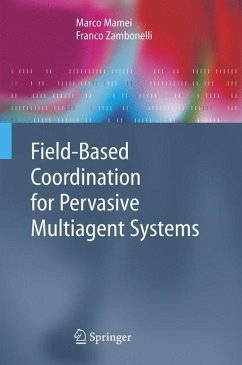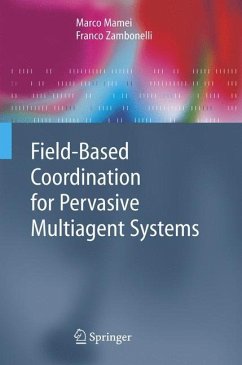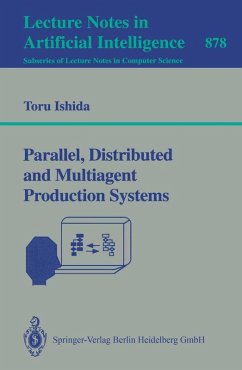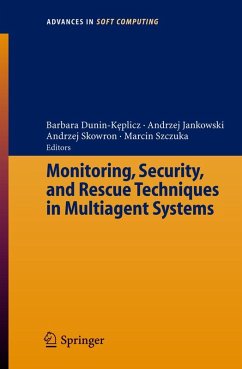
Multiagent Systems for Manufacturing Control
A Design Methodology
Versandkostenfrei!
Versandfertig in 6-10 Tagen
113,99 €
inkl. MwSt.

PAYBACK Punkte
57 °P sammeln!
The ability of production companies to rapidly develop and deploy effective and efficient control systems is critical for success in the consumer-driven environment of contemporary manufacturing. This book presents a novel approach to the design of manufacturing control systems, based around the idea of agents, semiautonomous decision makers that cooperate to process goods and meet orders. This new methodology is DACS - Designing Agent-based Control Systems.Developed at DaimlerChrysler's research labs in Berlin, DACS is the first methodology specifically produced for the design of agent-based ...
The ability of production companies to rapidly develop and deploy effective and efficient control systems is critical for success in the consumer-driven environment of contemporary manufacturing. This book presents a novel approach to the design of manufacturing control systems, based around the idea of agents, semiautonomous decision makers that cooperate to process goods and meet orders. This new methodology is DACS - Designing Agent-based Control Systems.
Developed at DaimlerChrysler's research labs in Berlin, DACS is the first methodology specifically produced for the design of agent-based control systems. Beginning with a detailed overview of agent technologies, manufacturing control, and design methodologies, the book explains the DACS methodology and illustrates it by way of detailed case studies. The book will be of interest to researchers and practitioners in agent systems, manufacturing control, and software methodologies.
Developed at DaimlerChrysler's research labs in Berlin, DACS is the first methodology specifically produced for the design of agent-based control systems. Beginning with a detailed overview of agent technologies, manufacturing control, and design methodologies, the book explains the DACS methodology and illustrates it by way of detailed case studies. The book will be of interest to researchers and practitioners in agent systems, manufacturing control, and software methodologies.














